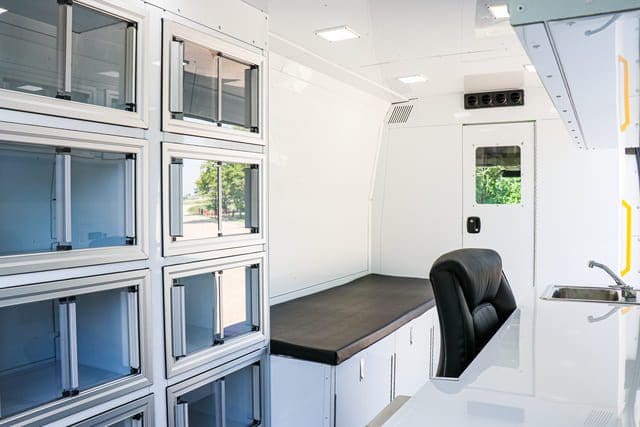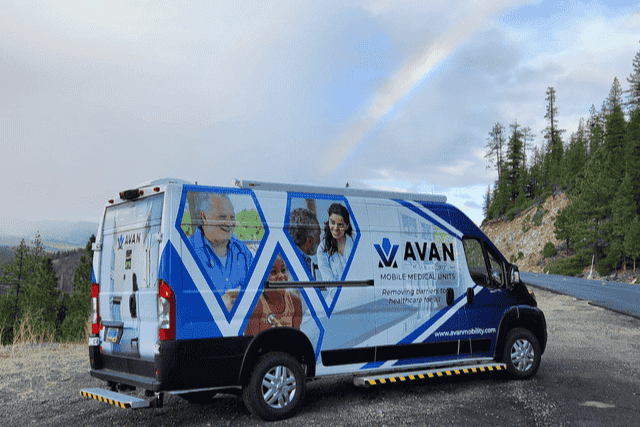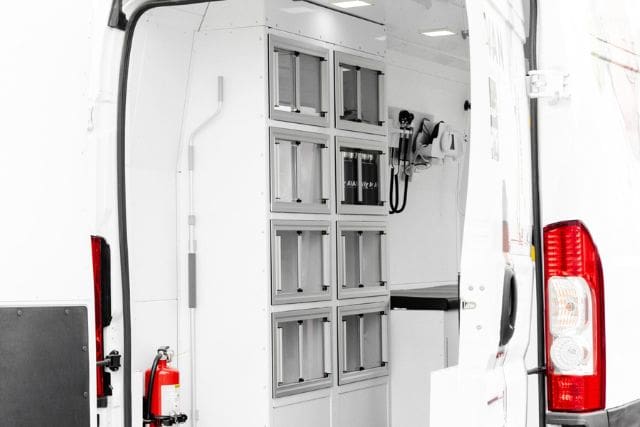I’m Russ Evans, an account executive at AVAN Mobility, and I’m passionate about helping people. With a background in emergency response, I’ve witnessed the critical need to keep folks out of emergency rooms when they don’t have to be there. The key? Bringing care directly to the people and addressing issues before they escalate into emergencies. Let’s look into how this proactive approach can change healthcare and prevent unnecessary ER visits.
The why of keeping people out of emergency rooms
Did you know that going for a regular check-up can cost only a small fraction—just 1/10th—of what an emergency room visit would cost for a small health concern? Not only does this save money on medical bills, but it also means people get the right care at the right time.
Keeping healthy and staying out of the emergency room starts with something called “preventative care.” This just means taking care of small health issues before they become big problems. When you catch a health problem early, it won’t have the chance to turn into a much larger and stressful situation with expensive visits to the emergency room.
Emergency room overcrowding is another issue that people often face when they go to one. We’ll take a closer look at that in the next section.
Emergency room crowding
In the world of emergency rooms (ERs), overcrowding isn’t just uncomfortable; it’s a serious problem affecting both patients and healthcare providers. Recent studies from Yale, led by experts Arjun Venkatesh and Edward Melnick, dig into the root causes and consequences of this issue.
One major culprit contributing to the chaos is “boarding.” This is when patients, deemed in need of admission, get stuck in the ER due to a shortage of beds and staff. It’s not a lack of beds per se, but rather a shortage of the right people to care for patients. The recommended nurse-to-patient ratio is 1-to-5, but staffing falls short, leaving patients waiting in the ER.
When patients are forced to stay in the ER for extended periods, it goes beyond discomfort—it impacts their recovery. A Yale professor, Karen Jubanyik, emphasizes the struggles of patients confined to hallways, lacking basic amenities like showers and proper nutrition. The fear of getting sicker deters some from seeking ER help, and others end up leaving without receiving the care they desperately need.
Mobile medical units: a solution worth exploring
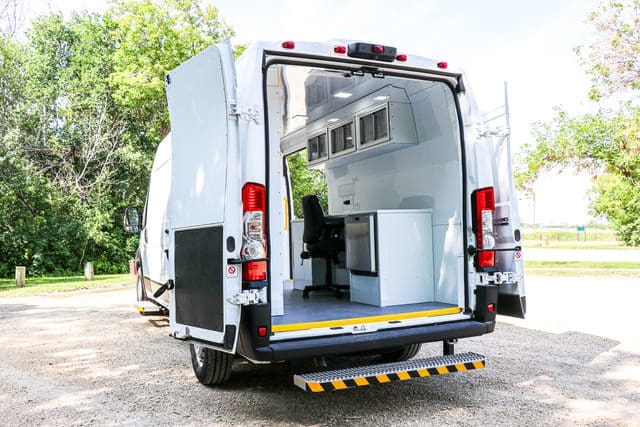
So, how do we tackle this crisis? Enter mobile medical units. These units offer immediate relief by providing care outside traditional hospital settings. They bring healthcare directly to communities, making it more accessible and reducing the strain on overcrowded ERs. It’s a shift towards a decentralized approach that could significantly benefit both patients and overworked healthcare providers.
Mobile medical units help prevent people from ending up in the emergency room when their health issues aren’t taken care of due to not having easy access to healthcare.
Mobile medical units are a big deal in rural areas because they can help right away and much faster than standard clinics. Getting care quickly stops health problems from getting worse. This makes it less likely for emergencies to happen in the future. It doesn’t matter if it’s getting shots, managing long-term health issues, or doing tests to catch problems early, these units deal with health needs right on the spot.
Dealing with ER overcrowding demands a comprehensive strategy. While short-term fixes are necessary, embracing innovative solutions like mobile medical units aligns with the broader vision of making healthcare available to everyone. This ensures better outcomes for both patients and the dedicated professionals on the front lines.
Mobile medical units save money and time
A visit to the emergency room can have people waiting up to 145 minutes, depending on what state they live in.
Mobile medical units aren’t just good for the people using them; they’re good for the whole healthcare system. They help save the medical system a lot of money by stopping unnecessary trips to the emergency room. Plus, because of their versatility, they work faster than trips to the emergency room. This makes it easier for emergency rooms to focus on really important and severe cases.
When we focus on preventing health problems and helping communities, it makes everyone healthier. Taking care of health issues early means people don’t have to rely on emergency services as much. This is a big win for everyone.
But how exactly do mobile medical units address health problems early? Read on to find out.
How do mobile medical units provide preventative care?
Ever wished you could tackle health issues before they become major headaches? That’s where mobile medical units swoop in. These roving healthcare hubs are a good way to stop healthcare problems in their tracks.
Think about this: Someone starts feeling a bit off, maybe a nagging pain or a small worry that something’s not right. Instead of waiting until it gets worse or visiting the ER, they visit a mobile medical unit parked conveniently in their neighborhood. The mobile medical units can also come directly to them if they’re unhoused or are faced with mobility and transportation challenges. Here’s the magic—they’re equipped to handle small health concerns before they snowball into emergencies.
The friendly healthcare team onboard is there to patch them up. They’re proactive problem solvers when it comes to health. They provide regular check-ups, catch issues early, and guide people on how to stay healthy.
And guess what? When mobile medical units help to deal with problems early on, it keeps folks out of the overcrowded chaos of the emergency room. It’s a win-win. People get timely care, and ERs breathe a sigh of relief, focusing on the big emergencies.
So, next time a health hiccup comes knocking, think mobile medical units—they’re not just fixing; they’re preventing, making sure you stay on the road to good health without unnecessary detours to the ER.
My take on a healthier tomorrow
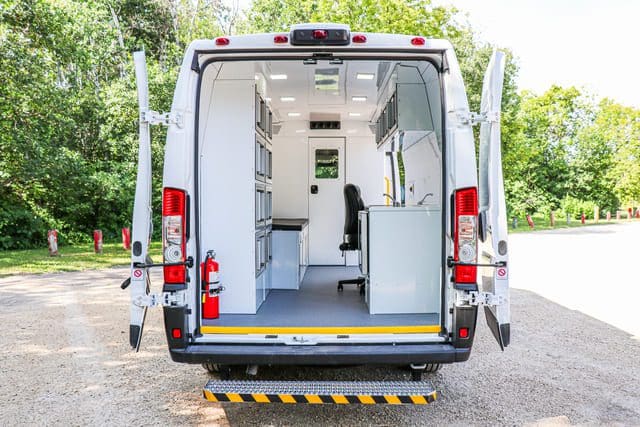
As I reflect on the maze of our healthcare system, it’s clear that using emergency rooms for preventable care is a road filled with unnecessary bumps.
We’ve all been there, feeling the pinch of health concerns that, if caught early, could spare us the chaos of an emergency room visit. Using emergency rooms for preventable issues hikes up the bills for taxpayers and also puts an extra load on our dedicated healthcare providers. This can end up leading to a potential dip in the quality of care.
But here’s the bright side. As you now know, mobile medical units are the game-changers your patients have been waiting for. They’re more than just vehicles; they’re beacons of proactive care. These units are lightening the load on emergency rooms, ensuring that the true emergencies get the attention they deserve.
So, here’s to a healthier tomorrow, where we embrace a smarter approach to healthcare. Let’s steer away from unnecessary ER visits and cruise towards a future where mobile medical units lead the way – making healthcare accessible, affordable, and, most importantly, preventing problems before they become headaches. Cheers to a road of well-being paved with the care we deserve!
From here, check out our article on the 4 types of mobile medical units. After that, read our article on the 5 steps to starting a mobile clinic program.
